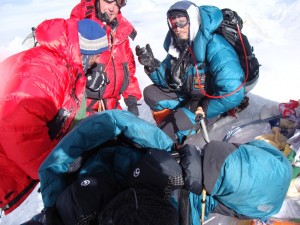April 3, 2012
Stanford University recently published a study about ibuprofen and its possible prevention of acute mountain sickness (AMS). We asked our resident ER Doc/guide, Dr. Emily Johnston, to weigh in. Below is her summation of the article.
—————-
If you’re planning a trip to altitude in the near future, you may have heard about a recently published study from Stanford University that took a look at ibuprofen as a medication to prevent acute mountain sickness. While this is potentially exciting news, and it does make sense physiologically, there are a few caveats:
1) The ‘n’ (number of subjects) in this study was relatively small, with 86 participants. Larger studies, in the future, may help confirm the effectiveness of ibuprofen for prevention of acute mountain sickness (AMS).
2) While ibuprofen is a commonly used medication, available without a prescription, it can still have significant side effects including kidney failure (worse with dehydration), bleeding of the gastrointestinal tract, and platelet and white blood cell dysfunction, which may alter your body’s ability to stop bleeding or ward off infection, amongst other things.
3) Sometimes we see an “if some is good, then more is better”
mentality with nonprescription medications. Remember to always follow the dosage guidelines provided with the over-the-counter medications that you buy, and read and heed the warnings.
It would be great if such a commonly used, generally safe and accessible medication is truly effective against AMS. This study is very encouraging, stay tuned for more information. And remember, people have been climbing mountains without medications for hundreds of years. While meds are great to have, when needed, they’re not a magic bullet for getting to the top. Nothing replaces careful physical and mental preparation. So keep on hitting the trail, or the gym, and get ready to enjoy your climb.
No one ever failed to summit because they were too strong!
Dr. Emily Johnston

